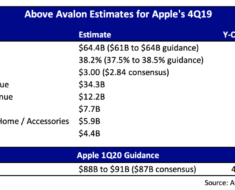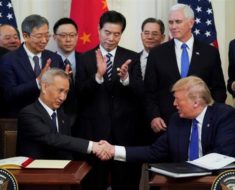On Saturday, CNBC reported that economists are warning there are dangers to the U.S. economy if Donald Trump delists Chinese firms on the U.S. stock markets.
What Types of Investment Constriction is Trump Proposing? –
Bloomberg reported on Friday that President Trump has issued a warning that his administration is considering blocking some types of U.S. investment in China by companies and private citizens. For example, the administration stated they would like to delist Chinese stocks that are on the U.S. stock markets. They also stated a desire to limit or restrict government pension funds from investing in Chinese firms. The administration’s stated goal is to protect U.S. investors through this action.
What Chinese Firms Are Listed on the U.S. Stock Market? –
Major Chinese firms that are listed on Nasdaq include Alibaba, JD.com and Baidu. There is also a mutual fund called iShares Large Cap China ETF that has Chinese firms listed.
Nasdaq’s Response –
CNBC reported that Nasdaq is concerned that they have an obligation to provide “fair access” to all companies that meet their eligibility requirements. They state this is a “statutory obligation” and provides a wide variety of investments for American investment and investors.
What is the Potential Problem? –
According to CNBC, one issue is the hit that the stock markets would take from the delisting and loss of investment dollars. Also, by not being able to have Chinese firms listed on American equity markets, those markets would have less strength compared to other global equity markets. For example, CNBC posited that these large Chinese firms would likely list on Hong Kong markets instead. Also, China is looking to create their own equity markets. Chinese firms could also list on the London stock market.
Will These Restrictions on American Investment Into Chinese Firms Occur? –
It is unclear if the Trump administration will truly carry out this restriction on investment in Chinese firms. Some analysts are speculating that the administration is going to use it as a leverage in their October negotiations with China.
If the Trump administration does follow through, though, CNBC is reporting that the consequences for U.S. equity markets, mutual funds and banks will mostly be negative. Also, they reported that economists fear that the overall U.S. trade imbalance will only increase if this move is carried to fruition.
Dil Bole Oberoi





